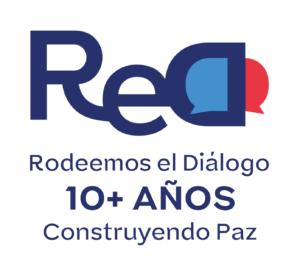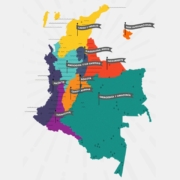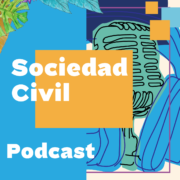LITERATURE AND RECONCILIATION
LITERATURE AND RECONCILIATION
A series of transnational literary dialogues to explore how societies throughout history overcome violent conflict and find healing beyond politics
Bogotá and London August-December 2014
Introduction
Since August 2013, Rodeemos el Diálogo (ReD) has carried out seven participatory seminars or ‘Conversatorios’ at Canning House and the Institute of the Americas at UCL to share information about the developments in the negotiations between the Santos administration and the Revolutionary Armed Forces of Colombia (FARC). Following an affective-participatory methodology ReD aims to create awareness and ownership about the challenges of building peace in this crucial historical conjuncture for Colombians. Our activities span two continents and one of our objectives is building bridges between Colombia and the United Kingdom: we have reproduced this participatory methodology in eight semi-formal breakfast discussions in Bogotá.
Colombia’s challenges for reconciliation are not unique. Throughout history, poets and novelists have written about the challenges faced by different societies in their transitions from war to peace. This series of talks seeks to share with Colombians and friends of Colombia experiences of social healing from antiquity to the present. It is especially important in this moment that Colombians start to make links between their own experiences and experiences of trauma and healing lived by other societies, in order to contextualise their peace process in a world of peace processes, and realise that they are not alone. It is also an important moment for global society to open its eyes to the process that Colombia is beginning to go through. We believe that literature has a special power to address these issues, encapsulating complex emotional and political issues in prose and poetry. Looking at trauma through culture is also a way of building bridges between polarised sectors of society.
ReD would like to kick off the literary dialogues in August (some day between 11 and 18) in Bogotá in the British Council, in partnership with the National Centre for Historical Memory. The second dialogue of the series will be hosted by the Free Word Centre in London, sponsored by Conciliation Resources, and in partnership with the Colombian Embassy in London, in September (some day between 5 and 11).
Andrei Gomez-Suarez (Universities of Oxford and Sussex)[1] will chair the literary dialogue in Bogotá, in conversation with Ruth Padel, a leading UK poet and classics scholar, who has accepted our invitation to Bogotá. Gwen Burnyeat (National University of Colombia)[2] will chair the dialogue in London, leading a panel discussion between Eva Hoffman, who has written on the emotional-psychological aftermath of trauma in the context of the Holocaust in both fiction and prose, and who has travelled extensively speaking about trauma in different contexts (including Poland, Rwanda and Japan) who has confirmed her participation, and Juan Gabriel Vasquez, prize-winning Colombian novelist, whom we are in the process of inviting.
Methodology
Each literary dialogue lasts for two hours. It is structured in four parts; firstly, welcome and introductions (5 mins); secondly, a semi-structured conversation between the chair and the writers (50mins); thirdly participatory Q&A and wrapping up comments (35 mins); and fourthly, wine reception (30 mins).
ReD will write an op-ed article (max 800 words) within a week of each Literary Dialogue. The article will be proofread by an editorial committee comprised of the writers and the two chairs.
We would like to welcome Colombians and friends of Colombia, writers, students, scholars, and artists with different political ideology, and economic, social and religious background. Maximum number of participants per session: 90 people (depending on capacity in the venue). This is a by-invitation only event, and one of the objectives will be to build networks between participants which will strengthen their understanding and participation in the social construction of a Colombia in peace.
Kicking off in Colombia
Our guest Ruth Padel suggests three poems for discussion. In ancient Greek myth the legendary singer Orpheus, patron of poets, drew all humans, and animals together through the power of song, because “harmony” is the act of joining. The discussion with the chair will have three parts, based around three poems from different times and places:
- Ancient Greece: Starting a Peace Process
Homer, The Iliad, Book 24
Here we address the acknowledgement of the universality of suffering, on both sides of a conflict. After twenty years of war, when the Greek champion Achilles has killed the Trojan champion Hector, and is still mutilating his body everyday, because Hector killed his friend, hector’s old father Priam comes secretly, dangerously, alone to Achilles to ransom the body of his son. The gods accompany Priam: he is making the first move towards peace.
- The Middle East: Transition & Creation
Ruth Padel, Learning to Make an Oud in Nazareth
Something new can be created out of and after trauma. Ruth Padel’s book of poems explores the ways in which human beings everywhere turn to making things in the face of conflict and trauma, whether in the concentration camps of the holocaust or the refugee camps of today’s Palestine. In the face of destruction, it is a human desire to want to make new things.
- Northern Ireland: Ceasefire and Healing
Michael Longley, ‘Ceasefire’
A peace, established, means reconciliation and acceptance of loss on both sides. Northern Irish poet Longley published this poem in 1994 when the Provisional IRA announced a ceasefire, which marked the end of their campaign. Longley’s poignant, thought-provoking poem addresses the difficulty of overcoming the past, and trying to break a cycle of violence, through Homer’s scene of reconciliation in the Iliad. ‘I get down on my knees and do what must be done / And kiss Achilles’ hand, the killer of my son’.
Literary Dialogue in the Free Word Centre
In the first section, the chair will facilitate a conversation between Vasquez and Hoffman, drawing on their recent publications and experiences in dealing with issues of suffering and reconciliation through literature. The discussion will draw out common themes that are universal, as well as uncommon themes which place the focus on the variety of individual experience in the face of extremity. Key issues that face Colombia will be presented and then opened to the audience for further discussion in the participatory Q&A. The chair will conclude with questions, stories and key themes that emerge in the discussion that could serve as bridges to be built between the Colombian experience and others.
We hope that partnering with ReD in this innovative initiative would be the start of a new bridge-building process: across institutions and civil society networks, across continents, and across time. We look forward to hearing from you and discussing further our proposal.
[1] Associate Researcher at the University of Sussex; member of the Sussex Centre for Conflict and Security Research (SCSR), Rodeemos el Diálogo (ReD), and British Academics for a Colombia Under Peace (BACUP); 2013-2014 Visiting Research Associate at Centre for Criminology, University of Oxford. E: andrei.gomez-suarez@crim.ox.ac.uk
[2] MPhil student in social anthropology, Leverhulme Trust scholar, and student fellow of the Royal Anthropological Institute. Member of Rodeemos el Diálogo (ReD). E: gwenburnyeat@gmail.com



